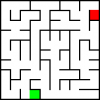Learning good design comes in part by trail and error. You find out what works and what doesn't. A few tips to help you out though.
Each class should only do one thing. Other classes should not need to know the inner workings of another class to use it. As an example below, say there is a class, Foo, where every time you assign fooBar you should incriment bar
////////////////////////
// The wrong way to do it
class Foo
{
public int bar = 0;
public int fooBar = 0;
}
Foo foo = new Foo();
++foo.bar;
foo.fooBar = x;
////////////////////////
// The better way to do it
class Foo
{
private int bar = 0;
private int fooBar = 0;
public void SetFooBar(int value)
{
++bar;
fooBar = value;
}
}
Foo foo = new Foo();
foo.SetFooBar(x);
If you find that you are repeating the same lines of code over and over again try to find a way to make a method out of it and make that method part of a class where it makes the most sense, the method should work with either members of the class or parameters passed to the method. Do not use global variables or singletons. Global constants are good though, they help you avoid magic numbers.
Only use inheritance when you need polymorphism. If you just need the functionality of another class just make it use the other class
////////////////////////
// Bad
class Foo extends Array
{
}
Foo foo = new Foo();
foo.Add(item);
//////////////////////
// Better
class Foo
{
private Array array;
void Add(Item item)
{
array.Add(item);
}
}
If any single function gets long split it up into smaller functions where each function does one well defined thing and the original function uses these small functions. This practice when done right will also help your reduce duplicate code. The same goes for large classes. If you have a large class, split up the functionality. There is no exact value for what is too long, but when a functions is over 50 lines of code you should consider breaking it up. If a class is approaching a few hundred lines of code, you should break it up.
/////////////////////////
// Bad
void Update(float timeStep)
{
// update position
position.x = position.x + velocity.x * timeStep; position.y = position.y + velocity.y * timeStep;
velocity.x = velocity.x + acceleration.x * timeStep; velocity.y = velocity.y + acceleration.y * timeStep;
if (doesCollide(world))
{
// collision code
}
// update AI
}
////////////////////////////
// Better
Point Add(Point a, Point b)
{
return new Point(a.x + b.x, a.y + b.y)
}
Point Scale(Point a, float b)
{
return new Point(a.x * b, a.y * b);
}
void UpdatePhysics(float timeStep)
{
position = Add(position, Scale(velocity, timeStep));
velocity = Add(velocity, Scale(acceleration, timeStep));
}
void UpdateCollision(float timeStep)
{
if (doesCollide(world))
{
// collision code
}
}
void UpdateAI(float timeStep)
{
// update AI
}
void Update(float timeStep)
{
UpdatePhysics(timeStep);
UpdateCollision(timeStep);
UpdateAI(timeStep);
}
I am going to stop there for now before I turn this into an article, but hopefully this is useful to you.
EDIT:
I would also suggest looking at Unity to see how they use a component based system. It by no means is the only way to organize a game, but it is a good example of how to solve the problem, it definitely isn't an easy one to solve.







